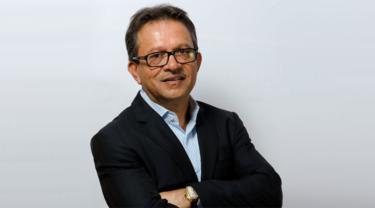When Ali Kizilbash and his wife Yuhana launched their bakery in Toronto in a small, 1,000-square-foot facility with just one oven back in 1997, they knew that exporting was going to be an essential part of growing their business. Now, nearly 20 years later, TWI Foods has two state-of-the-art facilities in Toronto and Mississauga that cover more than 200,000 square feet and is an international success, with exports accounting for more than two-thirds of its annual revenues.
“Obviously, nobody plans to go for the more difficult route, but looking at our model, exporting became the only way to grow,” said Mr. Kizilbash, who admits their first foray into selling into another country actually lost money when the distributor they hired wasn’t up to the job. But they quickly found another one and haven’t looked back since.
Today, TWI Foods exports to the United States, Europe, the Middle East, Southeast Asia and Australia, with plans to expand into Saudi Arabia and Japan in the near future. And what started as a specialized production facility for cake rusks, tea toast and baked goods aimed at Ontario’s South Asian community now sells everything from flatbreads and fresh cakes to cookies, shortbread, puff pastries and macaroons around the world, all produced in Canada.
“Generally, people like to take one product line and keep on expanding it and be the biggest in making one type of product,” said Kizilbash. “We don’t want to be the biggest in one thing, we want to be small in many things, which helps because you’re not competing with everyone in the market, but just trying to be innovative and have your own niche space where you can make decent money.”
Kizilbash says being based in Canada is a big plus for TWI Food, not only because Canada has great raw materials to work with but an excellent name in terms of food safety and product quality, too. He also praises the level of government support that’s available to help exporters.
“There is amazing support which exists, and you just have to go and get it,” he says. “It’s not very difficult to get support, both in terms of people who are there to help you find export channels but also the money to go and sell it.”
TWI Foods’ commitment to delivering high quality, affordable goods to customers in the most efficient ways possible has earned it a place as finalist on Deloitte’s list of Best-Managed Companies, and last year, it was named Ontario Food Exporter of the Year (having been one of three finalists the previous two years). It was also named a Top 100 Canadian Food and Beverage Processor and, thanks to growth of more than 200 per cent between 2010 and 2013, one of Canada’s Top 500 Fastest Growing Companies. And even though the company now employs about 250 people, it remains a family-owned business.
Kizilbash acknowledges that, while exporting can look very difficult, it’s not if you choose the right product and market and have initiative, guts and courage.
“Exporting is about taking the chance and then having the patience that it will materialize,” he said. “If you find that niche space where people are looking for better quality and better standards, that market does exist.”
Five questions with Ali Kizilbash
What was your first export sale?
When I came to Canada in 1997, I started with a small, 1,000-square-foot premises, so the numbers were obviously very small. I believe it would have been something like $5,000 or $6,000.
How did that first export opportunity arise?
I drove a van to New York, but I didn’t go out trying to sell to retailers. Instead, I found an individual who was looking for an opportunity. I actually lost money in that venture because this guy tried to distribute our products but couldn’t do it. So we transferred the goods to another establishment. In this whole process, we had the material there, we had the desire to sell the product, and finally we started getting things going.
When it comes to exports, what do you know now that you wish you knew then?
My first venture was in Pakistan, where I left Exxon and started a business which was extremely successful. I made a lot of mistakes, though, which I did not repeat this time. So I really don’t have any regrets or anything where I can say I would have done it better. I think it was nicely planned.
How has the trading world changed since you started in business?
The world has changed for us in that we keep on expanding, not only into different demographics and export markets, but into different categories of products, too. We are currently in an amazing space of huge growth.
What is the #1 thing new SMEs need to know about export and trade?
They should have a product which has a niche demand, so they’re not trying to compete against established products or brands. The market is looking for innovation. If they’re slightly innovative, they will easily find a lot of markets.





